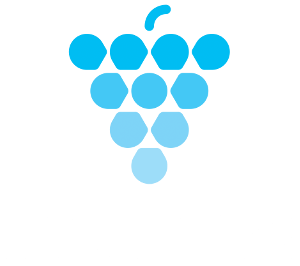כיצד ומדוע נקבעים מקדמי חלוקה באשכולות?
אשכולות היא הגוף המייצג את אמני ישראל בביצועים קוליים וחזותיים, ומנהלת עבורם את זכויותיהם באופן קולקטיבי, שקוף והוגן. במסגרת זו, אשכולות מחויבת לא רק לגבות תמלוגים מהמשתמשים, אלא גם לפתח ולתחזק מפתח חלוקה צודק, המשקף את הגיוון, המורכבות והשונות בכל סוג ביצוע.
למה צריך מקדמים?
שלא כמו תאגידים מסחריים או מנגנוני תשלום טכניים, ניהול משותף של זכויות אמנים מחייב, מעצם טיבו, חלוקה שאינה זהה בין כולם, אלא שוויונית במובן היחסי – לפי סוג ההפקה, אופי הביצוע, היקף ההשקעה הנדרשת בביצוע, וגורמים נוספים וזאת כמקובל בקרב חברות תמלוגים לזכויות יוצרים ומבצעים ברחבי העולם.
למשל, ביצוע דרמטי של שחקן בסדרת דרמה רבת-פרקים שונה במהותו מביצוע קולי קצרצר באולפן. כל אחד מהם חשוב, אך אופיים שונה – ולכן גם מקדם התמלוגים שלהם שונה.
פאולה שפנס שחיברה חיבור בנושא ניהול משותף, שפורסם על-ידי הארגון הקניין הרוחני העולמי (WIPO) ולאחר מכן על-ידי ארגון UNESCO מציינת כי:
“The pool of amount of available royalties is formed by all the collections in the section in question and will serve to pay all the owners of rights in all the duly identified works appearing in the programme returns. Each work receives a certain number of points. The value of the number of points assigned to each work depends on the scale developed by the administration society based on set weighting criteria. The basic criterion will always be either each work’s recording or performance time (pro rata temporis) or the number of works reproduced or performed (pro rata numeris). In the field of radio and television, almost all the societies have a scale which grants a multiplying factor according to the genre of the work – the aim here being to take into account in the remuneration the difficulty and degree of creativity or the chances or not of repeated use – or the type of use of the work as a main or secondary feature of the programme.
……
Each society determines its scale freely and sets the weighting criteria. However, the society must always ensure that there is no discrimination between the national repertoire and the international one. Whatever the criteria adopted, they must be applied objectively."
אשכולות חייבת לקבוע תבחינים – זו לא רשות, זו אחריות
חלוקת תמלוגים ללא תבחינים דיפרנציאליים עלולה ליצור עיוות חמור: אם כל ביצוע יקבל את אותו ערך – ללא קשר לסוג הביצוע, משך ההפקה, המורכבות שבו, או הדרישות המקצועיות – עלול להיווצר אי-שוויון מהותי שיפגע בציבור האמנים.
לכן, אשכולות קובעת מעת לעת מקדמים (משקלים יחסיים) לסוגי ביצועים שונים – מקדמים שמטרתם לאזן בין סוגות תוכן, לאפשר תגמול הוגן, ולעודד השקעה איכותית בכל תחום – ילדים, דרמה, קומדיה, מוזיקה, דיבוב ועוד.
פרופסור דניאל ג'רוויס, שכתב רבות בנושא הניהול המשותף של זכויות מצדד בכך שהתאגידים לניהול משותף יקבעו בעצמם את הקריטריונים לחלוקת התמלוגים בין המבצעים ולא המחוקק. וכך הוא כותב:
“We found no compelling evidence of a need to incorporate distribution rules in the Act itself. However, difficulties in this area have been mentioned concerning distribution by the so-called ‘‘umbrella’’ collectives. The Copyright Board did not set the distribution rules for those rights as it did for private copying levies. It may make sense to provide recourse to the Board to examine distribution systems also for rights to remuneration. Other than as mentioned in the previous sentence, distribution of funds is best left to the organizations and rightsholders concerned.”
בחיבור של ד"ר אולריך אוכתנהאגן שפורסם על-ידי WIPO, כותב המחבר:
“Care should be taken not to confuse the equality of treatment of authors with that of works. Works of short and long duration, works of small-scale and large-scale instrumentation, different types of music such as serious music, entertainment music, advertising music etc. can be distinguished. The different factors can also be marked by factors or co-efficiants, but in all cases provided that the same criteria are applied to national and foreign works. A collective management society that would decide to highlight for example symphonies for large orchestras, should do so for all the symphonies performed or broadcast and not only those of national origin.”
בפרסום אחר שנכתב על-ידי אוכתנהאגן עבור WIPO, מוסבר כי:
“As a matter of principle, a CMO should collect and distribute – fairly, promptly, and as accurately as possible – to individual Rightholders the Rights Revenue it has collected on the Rightholders’ behalf. It is therefore important that a CMO’s Distribution rules and policies are fair, objective, and transparent. The Distributions should reflect, to the greatest possible extent, the actual use of the content and the actual value attached to the use, or, when such data is not available on an agreed formula of proportionality, which must reflect actual use as far as economically feasible.”
מה לגבי שקיפות?
באשכולות כל מקדם, וכל שינוי נבחן לעומק, מתועד, ומפורסם. ההחלטות מתקבלות בוועדת התמלוגים לפי תקנון החברה, ועוברות תהליך מובנה, ענייני ואחראי. אין הפתעות, אין קומבינות – הכול כתוב.
ומה עם ההשוואה לעולם?
בגרמניה, הולנד, ספרד, שוויץ, אוסטריה, אוסטרליה, קנדה, בלגיה, פורטוגל, צרפת, איטליה ועוד עוד – מקובלים מקדמים דיפרנציאליים לסוגות ביצוע שונות. אשכולות לא ממציאה את הגלגל אלא פועלת בהתאם למקובל בעולם.
ומה קורה בישראל?
בישראל, קביעת מקדמים ותבחינים לחלוקת תמלוגים היא נוהג מקובל ומבוסס בקרב כל הארגונים המנהלים זכויות מבצעים ויוצרים. כך לדוגמה, תל"י – תאגיד לניהול זכויות יוצרים ביצירות קולנוע וטלוויזיה – קובע מקדמים דיפרנציאליים לסוגים שונים של תוכן, בהתאם לסוג ההפקה, היקף השימוש ורמת ההשקעה. גם אקו"ם, המייצגת יוצרים בתחום המוזיקה, מחלקת תמלוגים לפי משקלות שונים למלחינים, פזמונאים ומעבדים, תוך הבחנה בין סוגי היצירות ותרומת היוצר. עילם, האחראית על זכויות נגנים, עושה אף היא שימוש במקדמים, כאשר מנצחים לדוגמה, זוכים למקדם גבוה יותר. עקרון חלוקת התמלוגים לפי תבחינים מקצועיים מוסכם ומיושם גם בהנחיות רשות התחרות (לשעבר הרשות להגבלים עסקיים), המפקחת על פעילות תאגידי הזכויות בישראל. אשכולות פועלת באותו עקרון מקצועי ושקול, מתוך מחויבות לייצוג הוגן של כלל האמנים.
אז למה בכלל צריך את זה?
בלי מקדמים – לא נוכל לנהל את הזכויות בצורה הוגנת.
בלי הבחנה בין סוגי תוכן וביצועים – יהיו עיוותים בחלוקה ולא יהיה תגמול ראוי.
ובלי תגמול הוגן – לא תהיה יצירה מגוונת, מושקעת ומקצועית.

